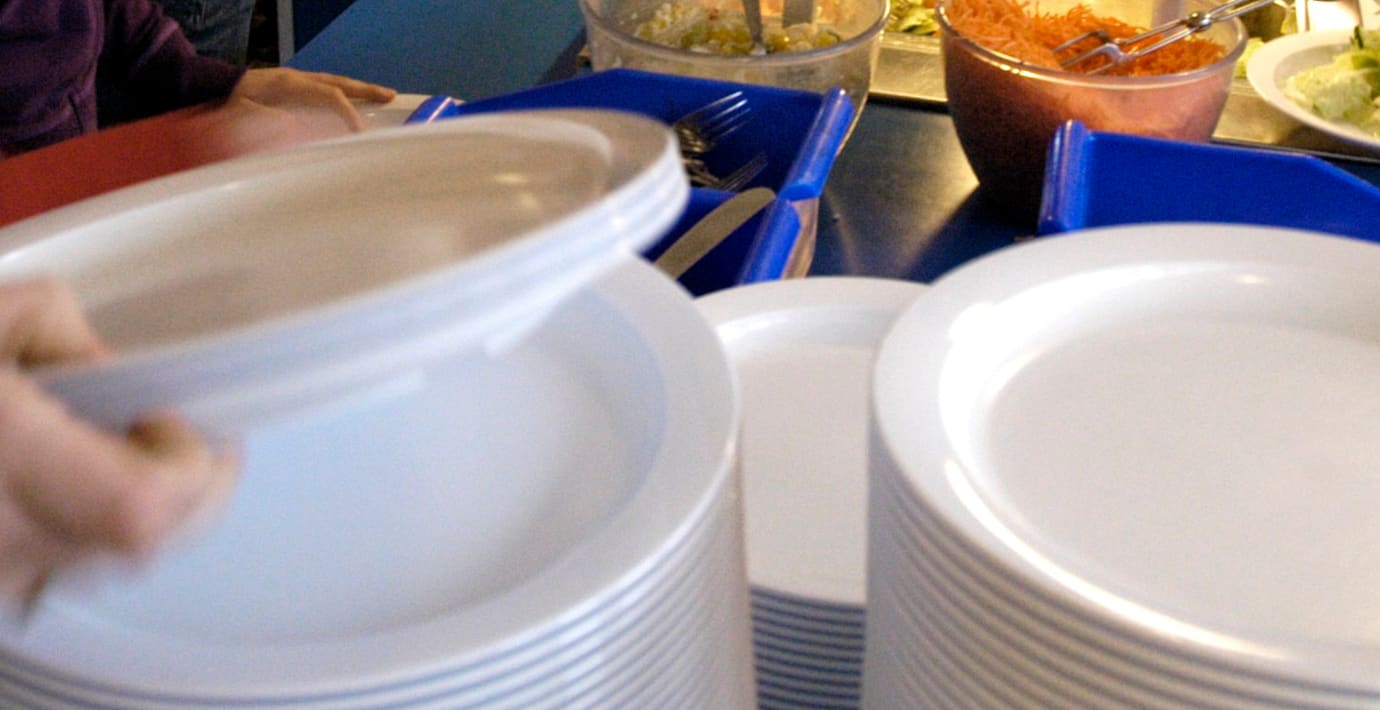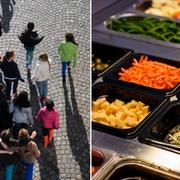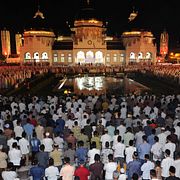
Skola vädjar till elever att skippa fastan på ramadan
En skola i Eskilstuna har gått ut med en vädjan till föräldrar och elever på skolan om att barnen inte ska fasta under årets ramadan. I brevet skriver skolan att ramadan kan bli extra jobbigt för eleverna i år eftersom det redan råder högsommarvärme.
Skolans tidigare erfarenhet av ramadan är att barn får svårt med koncentrationen och orken under skoldagen, skriver Eskilstunakuriren.
Enligt den muslimska traditionen avstår de som fastar från mat och dryck under dagtid. Hur den utövas och vid vilken ålder barnen börjar fasta varierar. På nordligare breddgrader väljer vissa att följa när solen går upp och ner i Mecka. Fastan handlar bland annat om att få förståelse för hur det är att vara fattig och att kontrollera sina begär.
bakgrund
Ramadan
Wikipedia (en)
Ramadan (; Arabic: رمضان Ramaḍān, IPA: [ramaˈdˤaːn]; also known as Ramazan, romanized as Ramzan, Ramadhan, or Ramathan) is the ninth month of the Islamic calendar, and is observed by Muslims worldwide as a month of fasting (Sawm) to commemorate the first revelation of the Quran to Muhammad according to Islamic belief. This annual observance is regarded as one of the Five Pillars of Islam. The month lasts 29–30 days based on the visual sightings of the crescent moon, according to numerous biographical accounts compiled in the hadiths.
The word Ramadan comes from the Arabic root ramiḍa or ar-ramaḍ, which means scorching heat or dryness. Fasting is fard (obligatory) for adult Muslims, except those who are suffering from an illness, travelling, are elderly, pregnant, breastfeeding, diabetic, chronically ill or menstruating. Fasting the month of Ramadan was made obligatory (wājib) during the month of Sha'ban, in the second year after the Muslims migrated from Mecca to Medina. Fatwas have been issued declaring that Muslims who live in regions with a natural phenomenon such as the midnight sun or polar night should follow the timetable of Mecca, but the more commonly accepted opinion is that Muslims in those areas should follow the timetable of the closest country to them in which night can be distinguished from day.
While fasting from dawn until sunset, Muslims refrain from consuming food, drinking liquids, smoking, and engaging in sexual relations. Muslims are also instructed to refrain from sinful behavior that may negate the reward of fasting, such as false speech (insulting, backbiting, cursing, lying, etc.) and fighting except in self-defense. Pre-fast meals before dawn are referred to as Suhoor, while the post-fast breaking feasts after sunset are called Iftar. Spiritual rewards (thawab) for fasting are also believed to be multiplied within the month of Ramadan. Fasting for Muslims during Ramadan typically includes the increased offering of salat (prayers), recitation of the Quran and an increase of doing good deeds and charity.
Omni är politiskt obundna och oberoende. Vi strävar efter att ge fler perspektiv på nyheterna. Har du frågor eller synpunkter kring vår rapportering? Kontakta redaktionen


